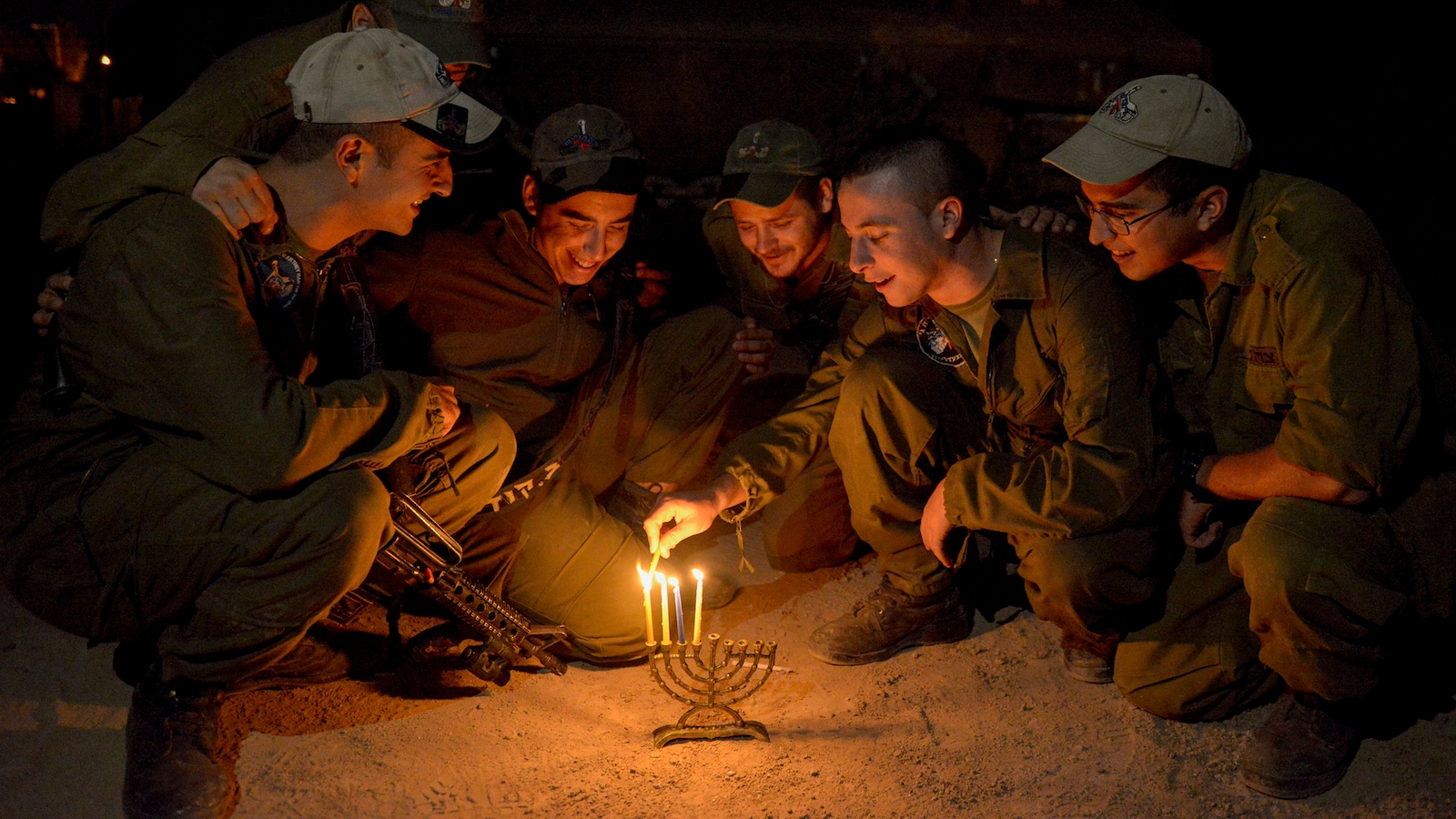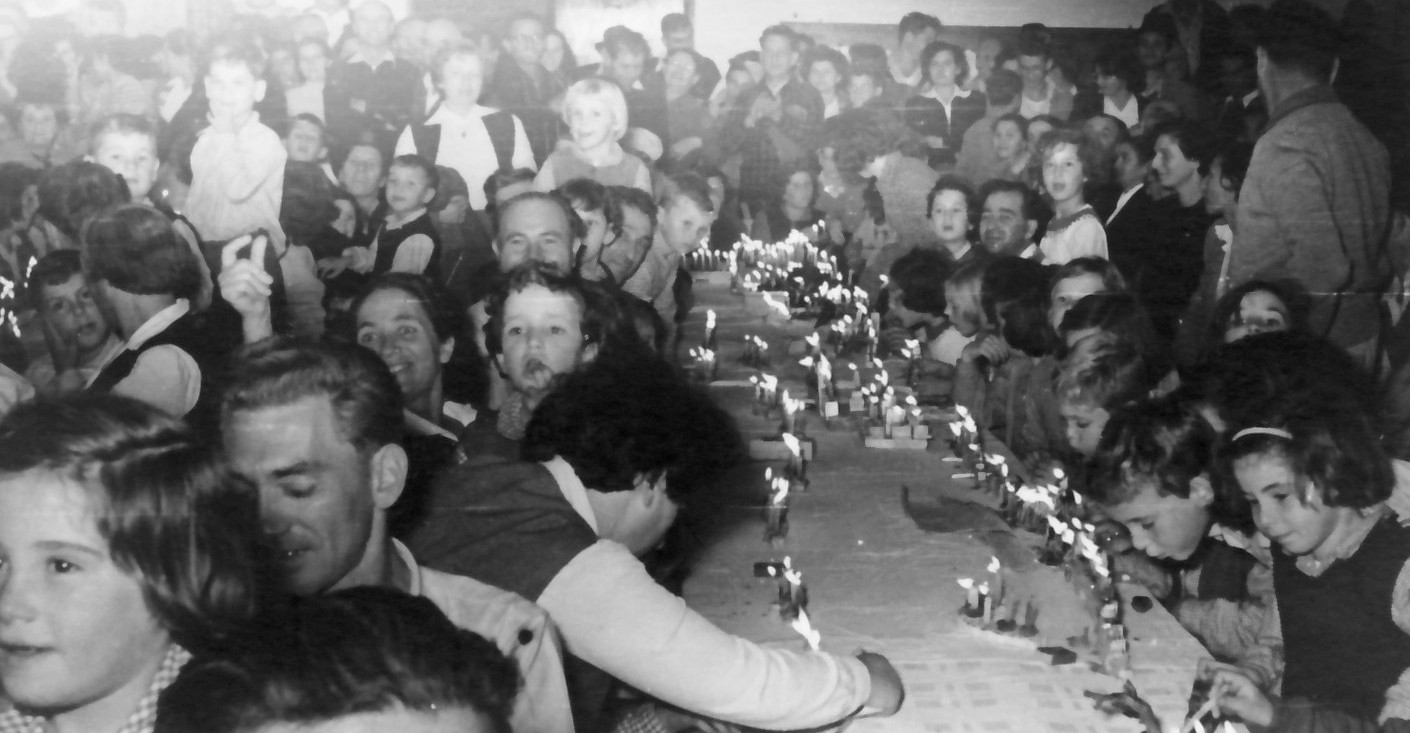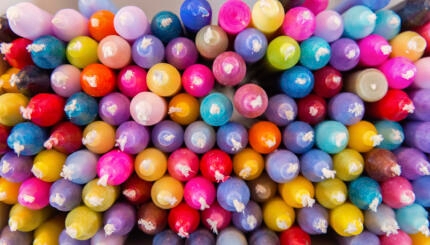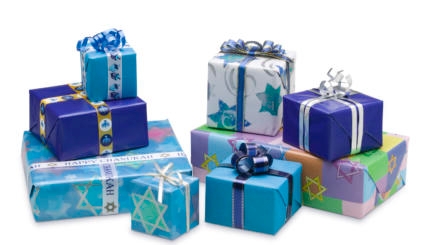If you have ever been amused to find that a popular Israeli beer is named “Maccabi” or wondered why the “Jewish Olympics” are called “Maccabiah,” then you have been exposed to the use in modern Hebrew culture of the image of the historical Maccabees, the heroes of the story.
The modern secular nationalist movement among the Jews of the late 19th and early 20th centuries looked to the past in search of heroes whose prowess was expressed through their bodies, not (or not only) through their minds — heroes whose stirring accomplishments may be recorded in books but were not limited to the writing of books.
The Maccabee Model
For modern Zionists, then, no group in Jewish history was better suited for the role of heroes than that band of irregulars whose guerrilla war against the imperial rulers (in this case, Greek-speaking Hellenists based in Syria) ended in victory and national liberation: the Maccabees.
Saul Tchernichovski, a prominent Hebrew poet of the early 20th century, captured this sense that the Maccabees are the model for the “New Jew” in a short poem (later made into a popular song) that pictures a contemporary Jew arriving in the Land of Israel, encountering the famous second-century sage Akiva, and inquiring, “Where are they, the holy ones? Where are the Maccabees?” Akiva’s reply: “All Israel is holy. You are the Maccabee!”

Help us keep Jewish knowledge accessible to millions of people around the world.
Your donation to My Jewish Learning fuels endless journeys of Jewish discovery. With your help, My Jewish Learning can continue to provide nonstop opportunities for learning, connection and growth.
When Jewish sports clubs were established in central Europe, one of the first and largest networks of those clubs was called “Maccabi” (accented on the second syllable: “mah-KAH-bee”). Its successor organization, the Maccabi World Union, is the sponsor of the sports competitions for Jewish athletes from around the world. Maccabi sport clubs have been transformed into professional teams in some Israeli cities. Maccabi beer — no relation to the sports organization — is so named in order to promote a manly image for its primarily male market.
From Divine Deliverance to Self-Defense
The historical Maccabees were motivated by indignation at what they viewed as religious coercion imposed upon the Jews in their own land by the pagan rulers and their Jewish supporters and collaborators. To judge by the literary sources closest to the events, the books known as First and Second Maccabees, the Maccabees’ quest was a religious one at least as much as it was a movement for national self-determination.
Modern Zionism, on the other hand, originated with Jews who had largely strayed from the strictures of traditional religion but wanted to maintain their Jewishness in a new, secular form.
Hanukkah, which had always been a minor holiday, attained new significance and new importance in modern Hebrew culture as the celebration of the victory of the brave Judah Maccabee and his brothers. The traditional eight-branched candelabras are lit in the windows of most Jewish homes and shops in Israel each night, and large electric-bulb versions are found on public buildings and town squares. The lighting, in homes or at public events, is usually accompanied by a recitation of the traditional liturgy that speaks of divine intervention in history on behalf of the Maccabees.
Otherwise, though, we find in the songs and practices of Hanukkah in Israel a reworking — even a total reversal — of many elements of the holiday’s traditions.
Some of those changes are subtle, such as a popular song from the 1970s by the doyenne of Israeli popular music in those years, Naomi Shemer. The song begins with the first line of the medieval Hanukkah anthem Ma’oz, tzur yeshu’ati: “Stronghold, rock of my salvation, it is fitting to praise You.” The meaning of those terms shifts as the song then makes clear that the speaker is referring not to God but to a fortified military outpost on one of Israel’s borders, where he is posted to keep watch for the enemy who may approach. What was metaphor for the medieval author is used in its simple, literal sense by the modern writer, for whom the fortresses of the Jews are physical, not theological.
Soldiers as Saviors

Other such transvaluations are far from subtle. The lyrics of the popular Hanukkah song Mi y’mallel (“Who can recount…?”) were written by one of the creators of Hebrew folk music in the early 20th century, Menashe Ravina (1899-1968). He begins by reworking the verse “Who can recount the mighty acts of the Lord, recite all His praises?” (Psalms 106:2) into this: “Who can recount the mighty acts of [the people] Israel? Who can count them? / In every generation a hero arises, redeemer of the people.” Praise of God has yielded to praise of military victors, and the title of “redeemer” (go’el) is now applied to a human rescuer, not a divine one.
Similarly, traditional liturgical texts refer to God when they use the terms moshia’ (savior)and podeh (redeemer), but the song Mi Y’mallel next speaks not of God but of the Maccabees in those terms: “Hark! In those days at this season [a phrase borrowed from Hanukkah liturgy] / the Maccabee was savior and redeemer, / and in our days the entire people of Israel / will join together, rise up, and be rescued.”
It will not be by a miraculous divine intervention that the Jews are delivered from repeated persecution and exile, claims the songwriter. Using the Maccabees as his model, he advocates that the Jewish people take their fate into their own hands and, rather than responding with flight, adaptation, or martyrdom, instead take up arms against their oppressors.
Another well-known Hebrew Hanukkah song also recasts part of the Hanukkah liturgy in secular terms. The traditional liturgy speaks of giving thanks “for the miracles and the wonders… which You performed for us in those days at this season.” The lyrics of Y’mei ha-Hanukkah, written by Hebrew linguist and educator Avrunin (1869-1957), speak of appreciation “for the miracles and the wonders which the Maccabees brought about.” Significantly, among religious traditionalists in Israel it is common to hear the end of that refrain revised to: “…which God brought about for the Maccabees.”
Perhaps the most daring rejection of the traditions of Hanukkah in popular Israeli music is the song Anu nos’im lapidim (“We are carrying torches”), the lyrics to which were written by the poet “Ze’ev” (Aharon Ze’ev, 1900-1968) and published in his 1951 collection Pirhei Bar (“Wildflowers”). Sung to a march beat, the song is an anthem of the self-sacrificing pioneers of modern Israel, who, in the italicized lines, contrast their lives with those of the Maccabees as described in the Babylonian Talmud:
We are carrying torches. In the dark night the paths shine beneath our feet, and whoever has a heart that thirsts for light–let him lift his eyes and his heart to us and come along. No miracle happened for us. No cruse of oil did we find. We walked through the valley, ascended the mountain….
The lyricist does not directly deny the historicity of the Talmudic account of the oil that miraculously burned for eight days. He does, however, contrast the ancient tale of God’s deliverance of the Jews with the mythic accomplishments of the pioneer generations of modern Jews returning to their homeland.
In this, as in so many features of Zionist culture, those modern Jews in Israel and elsewhere who shaped secular Zionism have both appropriated and rejected central features of the way Jewish historical memory has preserved the past, recasting the old in startling new forms.
<!–Rabbi Peretz Rodman is a Jerusalem-based translator, editor, and writer who teaches at the Rothberg International School of the Hebrew University of Jerusalem. He was the founding editor of MyJewishLearning.com’s "Daily Life and Practice" section. –>
Explore Hanukkah’s history, global traditions, food and more with My Jewish Learning’s “All About Hanukkah” email series. Sign up to take a journey through Hanukkah and go deeper into the Festival of Lights.



